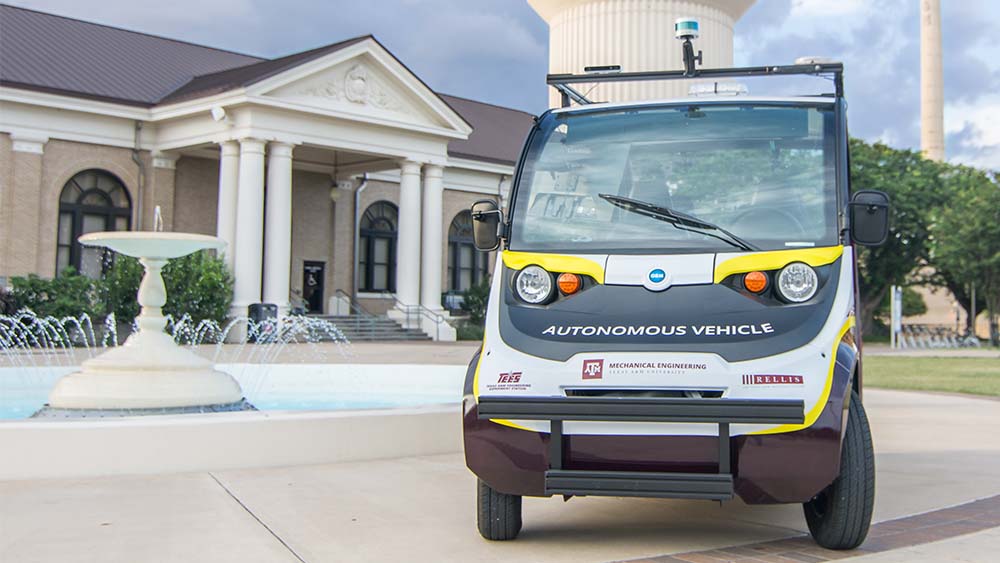
What is the Transportation Industry?
Engineering in the transportation industry involves the safe and efficient movement of people and goods. This includes designing and maintaining all types of transportation facilities, including highways and streets, mass transit systems, railroads, airfields, ports and harbors.
Majors that Could Lead to Transportation Careers
Students interested in transportation careers could start their career paths through several majors offered by the Texas A&M University College of Engineering.
See below for a list of some of our majors that could lead to a transportation career.
- Aerospace engineering: Students learn how to invest in safety and compliance of proposed transportation activities. In a transportation career, they will also use skills within command and control, fluid dynamics, propulsion, systems integration, etc.
- Civil engineering: Civil engineers are involved with the safe and efficient movement of both people and goods. They design and maintain all types of transportation facilities, including highways and streets, mass transit systems, railroads, airfields, ports and harbors. This dynamic field allows engineers to identify and solve complex transportation problems.
- Computer engineering: Students gain knowledge about the hardware and software that are used for systems such as smart roads and bridges, and sensor networks. The need for these skill sets is on the rise in the modern transportation career field.
- Computer science: Exciting work is being done in computing at Texas A&M, including research into electronic maps, self-driving vehicles, smarter in-vehicle technology and the development of smart roads and highways to integrate with connected and autonomous vehicles.
- Data engineering: Data Engineers work on analyzing datasets to provide accurate and real-time transportation recommendations accounting for uncertainties and unforeseen events that occur in the transportation networks.
- Electrical engineering: Autonomous vehicles are a large focus within the modern transportation career field. Therefore, knowledge of and experience with electric cars, self-driving cars and smart roads will be some of the primary outcomes of an electrical engineering degree for a student pursuing a transportation career.
- Environmental engineering: Environmental engineers are involved in monitoring and developing standards that protect public health and the environment. This dynamic field allows engineers to identify and solve complex problems to reduce emissions of pollutants by developing models for transportation-related sources and mitigation technologies to manage exposures in built and natural environments.
- Industrial and systems engineering: Industrial engineers work in a variety of transportation sectors improving and maintaining safety while reducing inefficiencies. They develop solutions for complex transportation problems along with the logistics need to support national and international transportation networks.
- Industrial distribution: The delivery of industrial and construction supplies is often complex and time-sensitive. Industrial distribution majors will learn how to plan, optimize and execute strategies and solutions for delivering these supplies efficiently.
- Manufacturing and mechanical engineering technology: The operation and design of efficient transportation systems — which also extend to vehicles' mechanical systems, engines, and control systems — are important topics that students in this major will gain experience with.
- Materials science and engineering: Materials engineers develop new battery materials for driving the electronic cars of the future, and they also build and refine lightweight but strong Mg-based alloys to make cars safer and more efficient.
- Mechanical engineering: Students learn about technology developments for any transportation/transit system, which include power mechanisms, control systems, driver-vehicle interfaces, autonomous systems development, intelligent transit systems for information, and control.
- Multidisciplinary engineering: The transportation industry relies on interdisciplinary engineering concepts with techniques from management, economics, operations research and environmental studies.
- Multidisciplinary engineering technology: Autonomous vehicles are classic examples of electromechanical systems that require the broad set of skills that mechatronic graduates possess.
- Ocean engineering: In the transportation industry, ocean engineers are vital in the analysis and design of military ships and submarines, commercial tankers, bulk carriers, container ships, dredges, barges, ferries, tug boats and recreational boats (both personal and cruise). Ships and offshore systems are designed according to national and international guidelines and standards such as American Bureau of Ships, International Maritime Organization and others.